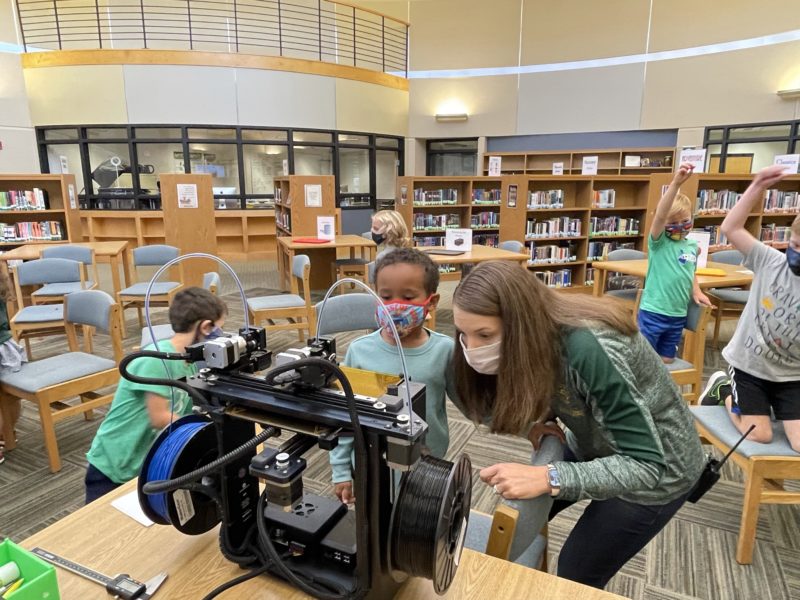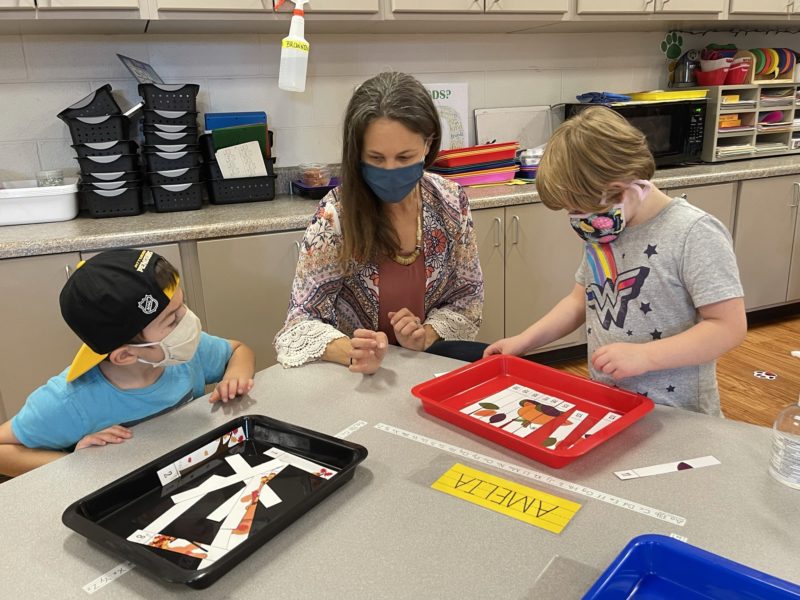Five Tips for Great Parent-Child Communication
By Guest Blogger Shannon Kincaid, Lower School Counselor at Greensboro Day School
Children love stories! Not only do they love hearing stories in the form of books and fairy tales, but they also love to tell stories. For young children, telling a story about something that happened during the day can be an important way for them to make sense of those experiences, both positive and negative. Even at an early age, the way you listen and respond can have a lasting impact on your child’s development. The tips below will help you make the most of the times when your child wants to tell you a story about their day.
1.Allow children to tell their story their own way
Even if you think you know what they are going to say or how the story ends, let them tell you their own way. By letting children find their own words for their experiences, you help them gain confidence and discover new ways to express themselves.
2.Be an active listener
Check in to see if they have finished sharing. Saying things such as, “Is there anything else that happened that you’d like to share?” can show that you are actively listening and value their full experience. Also, be aware of your body language: make eye contact, get on their level, match their body language, lean in, nod to affirm. All these little things let them know you’re listening, that you are invested in what they’re saying, and that you find it important.
3. Help them develop their story by asking open-ended questions
Your child often has more to share—they just need a little encouragement! By asking open-ended or clarifying questions, you show that you are engaged and interested. For example, encourage them to share more detail by saying, “Tell me more!” or “I’d love to know more about ___.”

4. Connect to their story while keeping the focus on them
It’s tempting to keep the conversation going by talking about your own experiences. This shifts the focus from your child to you, so keep the conversation going by pointing out things that you enjoyed about their story. For example, “Will you tell me how he said it again?” or “I love how excited you looked when you told me about the science experiment!”
5. Remember that a child’s feeling is always valid
It’s important to validate the way your child is feeling, even if you see a need to shift their perspective. Validation is an important way of letting your child know that you accept their thoughts and feelings, even if you might not understand or agree with them. Start with validation and then encourage a more empathetic approach.
As the Lower School Counselor at Greensboro Day School, it is my pleasure and privilege to work with elementary-age children. Each and every day, their stories entertain, amuse, and move me. If you’d like to learn more about how GDS helps young people thrive through curiosity, kindness, and positive communication, you can learn more at our All School Open House on Thursday, November 11, at 9:30 a.m. Click here to learn more or to register.

________________
About the Author
Shannon Kincaid is the Lower School Counselor at Greensboro Day School. She is a Licensed Clinical Social Worker and a trained specialist in the Triple P – Positive Parenting Program, one of the most effective evidence-based parenting programs in the world.
